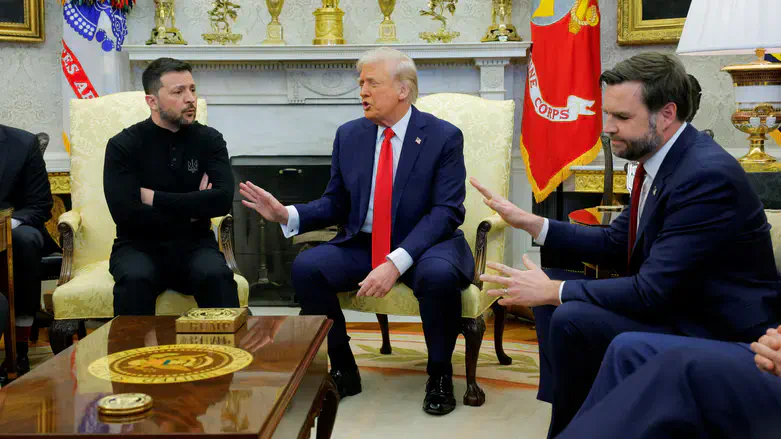
Ukrainian President Volodymyr Zelenskyy has found himself under scrutiny for his unbashed double standard in international rhetoric and policies. While vocally demanding secure borders and international aid for Ukraine, Zelensky has simultaneously been critical of Israel's actions at the United Nations, where he has advocated for a ceasefire and a two-state solution, demanding Israel’s borders stay unsafe and in danger for another October 7th massacre.
Ukraine is a master in continuously positioning itself as a victim on the global stage, garnering significant international sympathy and financial aid, notably from the United States. At least, up to now.
His persistent bid to join NATO although being unqualified to join—a move that has long antagonized Russia is the reason millions of lives were lost in Ukraine and Russia.
The war could have been avoided with Ukraine removing its pre-mature request to ask for NATO membership. Russia had articulated that such a bid would be seen as a direct threat, potentially triggering military action. President Vladimir Putin had even stated that he would refrain from aggression if Ukraine withdrew its NATO application—a point that the egotistic Ukrainian administration, with backing from the Biden administration, rejected.
This steadfast pursuit has resulted in a war with a significant loss of life, which could have been averted through strategic diplomacy. The Biden administration's support for Zelensky’s stance led to a war of attrition with devastating humanitarian consequences.
Furthermore, Zelensky’s criticism of Israel at international forums such as the United Nations stands in stark contrast to his position on Ukraine’s territorial integrity. Ukraine has consistently voted against Israel, supporting policies that are often interpreted as supportive of Hamas. This position starkly contrasts with his appeals for global support and military aid to uphold security for Ukraine against Russian aggression.
The dissonance is palpable: Zelensky seeks recognition and aid for Ukraine’s plight while not extending the same understanding to Israel, who is striving for a secure borders amidst actual and unavoidable regional threats.
U.S. President Donald Trump has attempted to mediate the complex geopolitical landscape, only to distance himself from Zelenskyy's administration due to perceived double standards and his instigating the Russian invasion.
It is this perceived contradiction in Zelenskyy’s positions—demanding protection and support for Ukraine while not reciprocating that understanding towards Israel—that has raised questions about the principles guiding his leadership. This inconsistency not only affects Ukraine’s international standing but also raises broader questions about the nature of alliances and support he is asking for on the world stage.
As Ukraine continues to navigate its path through an ongoing conflict, and as Israel manages its security challenges, the global community is left to ponder the complexities of international support, the criteria for alliance, and the true meaning of security and sovereignty in a world where political and ethical lines are increasingly blurred.
Duvi Honig is Founder and Chief Executive Officer of the Orthodox Jewish Chamber Of Commerce.
